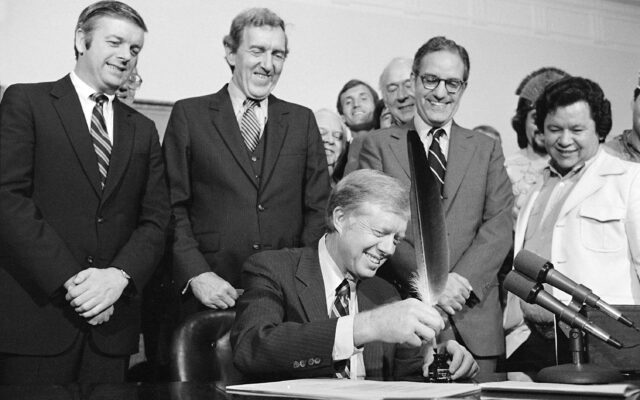
Maine settlement act shouldn’t be amended without consent of tribes and state
In December, Maine averted a disaster when a provision that would have drastically altered the jurisdiction of the state of Maine was stripped from a federal spending bill. The U.S. House and Senate reached a deal on an omnibus appropriations bill without language that would have drastically altered the jurisdiction of the state of Maine tribal areas, without the support of the state of Maine itself.
That language, from Rep. Jared Golden’s Advancing Equality for Wabanaki Nations Act (H.R. 6707), would have upended a more than 40-year-old settlement agreement between the state and tribal nations in Maine that provides for the uniform application of Maine law (including Maine’s highly protective environmental laws) throughout the state, across tribal and non-tribal lands alike. This uniform application of the law is essential to municipalities such as ours because we depend on consistent environmental laws and standards to build and maintain roads and other infrastructure (such as dams and bridges), treat our residents’ sanitary waste, and regulate other development within our borders. Fortunately, the law will continue to be applied uniformly across the state in large part thanks to Sen. Angus King.
Golden’s legislation would have effectively made it impossible for the state and municipalities to apply a uniform set of environmental laws in Maine, including within tribal land. It would have eventually displaced the state’s and municipalities’ authority to enforce their own laws, creating a patchwork of separate jurisdictional areas with separate and duplicative environmental laws. That result was precisely what the 1980 Settlement Acts were intended to avoid, and the result the courts over the last 43 years have ruled they were in fact designed to avoid.
But King’s refusal to support Golden’s language, which Golden had added into an appropriations bill, ensures that all of us in Maine, including members of the Indian tribes, will continue to benefit from consistent and protective environmental laws. In fact, the guarantee of uniform jurisdiction was recognized by the tribes themselves when they were negotiating the Settlement Acts with the state, with an attorney for the Native American Rights Fund, Tom Tureen, expressly acknowledging “the legitimate interests of the State in having basic laws such as those dealing with the environment apply uniformly throughout Maine.”
We agree with King that no changes should be made to the jurisdictional framework in the Settlement Acts without the consent of both the state of Maine and the tribes. After all, the Settlement Acts were a settlement of disputed litigation that required the agreement of all the parties to that settlement, so amendments must also require the agreement of all the parties. And we believe that King’s common-sense approach to consistent and stringent regulation of the woods, waters and wildlife here in Maine benefits us all.
Richard Bronson is the town manager of Lincoln. David Lloyd is the town manager of Howland. Jeff Day is the superintendent of the Lincoln Water District. Cody Smith is the superintendent of the Guilford-Sangerville Sanitary District. Rob Tomilson is the chair of the Veazie Sewer District. Tony Michaud is the treasurer of the Veazie Sewer District. Matt Miller is the clerk of the Veazie Sewer District.